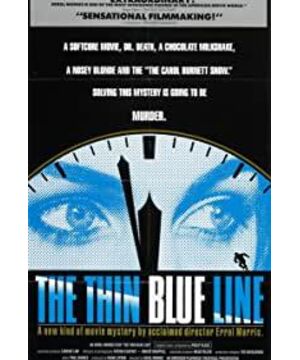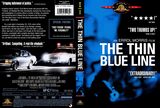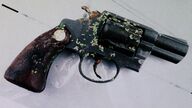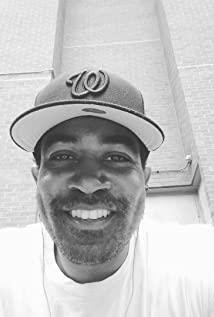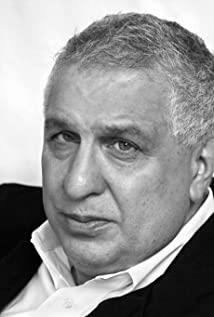The film "The Thin Blue Line" is based on the murder of Officer Wood in Dallas, Texas, USA in 1976. The director of the film, Errol Morris, used the method of reenactment to finally prove that he was sentenced to death. The murderer, Randall Adams, was actually wrongly convicted, and the real murderer was David Harris, who testified against Adams, successfully proving Adams' injustice... After the film was released, it caused a heated discussion, and Adams was also He was acquitted after being imprisoned for more than 11 years.
This is a representative work of Western new documentary films in the 1970s and 1980s. The director confronted the criminal suspect Landau Adams, who was sentenced to death and later sentenced to life imprisonment, David Harris, the habitual offender who testified against Adams, the three witnesses to the trial of the case, the Miller couple and Mike Landau, and The interviews with the police, judges and lawyers involved in the detection and trial of the case are the highlight of the whole film.
At the beginning of the film, the fascinating soundtrack brings people back to the case, and then the film is connected with interviews with the parties involved in the case. 18 people related to the case appear in the film one after another. I like the interview material interspersed with a large number of video materials of different styles, such as scenes related to the crime, text and photos of news reports, etc. I also like the color tone and soundtrack in the film. In particular, the soundtrack in the film can not only create a different atmosphere, but also enhance the audience's sense of substitution. But in this documentary, what I like most is the interviews with multiple interviewers, and the director only kept the interviewees' answers. There is no voice-over commentary, which also makes the film have some different colors, as if the parties are talking to you about what happened slowly, without too much pressure. But as other comments have said, I think the biggest impact of this documentary is its realistic irony. It exposes some dark sides of the law, and exposes that justice is sometimes only relative, but it remains the same. Zong, the overall tone of the film is still righteous, and it promotes a sense of legal justice. Evil cannot overcome righteousness. I believe this has a great inspiration for our lives.
View more about The Thin Blue Line reviews


